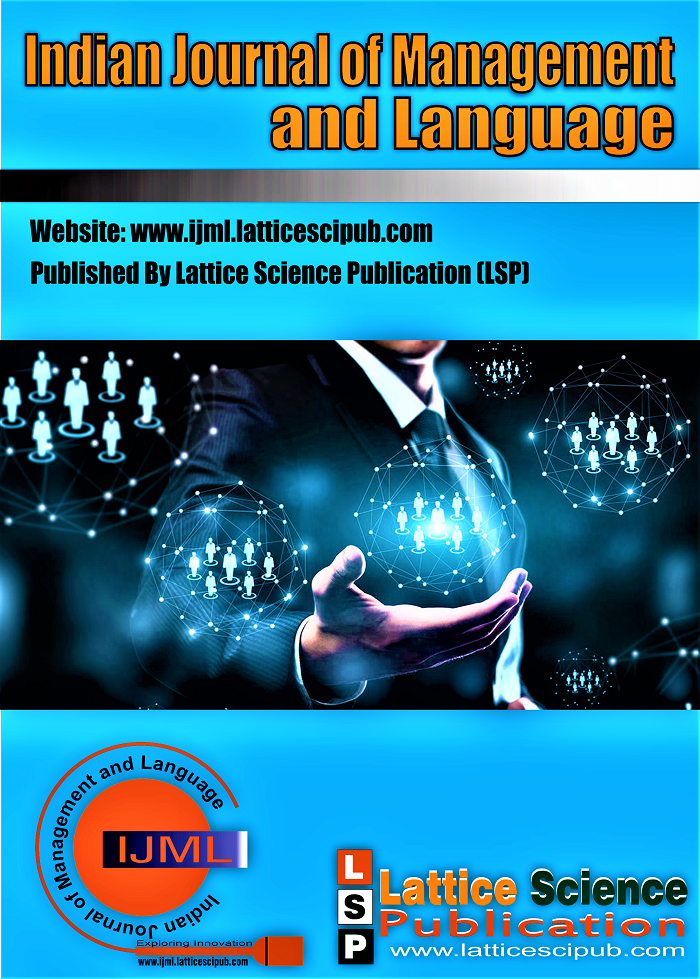Investment Knowledge Effects Share Ownership Among Civil Servants in Moshi Municipal Council, Tanzania
Main Article Content
Abstract
This study investigated on how investment knowledge and education affects share ownership among civil servants in Moshi Municipal Council, Tanzania. The study was grounded by Social Exchange Theory, which suggested that people are more likely to invest when they believe that the benefits of ownership outweigh the risks and costs associated with ownership. This study used mixed approach to collect and analyze data both qualitative and quantitative within the same research project. Concurrent Design was used to provide a comprehensive understanding of the topic of study by triangulation data obtained from multiple sources. A sample size of 187 respondents were obtained using the Yamane Formula through purposeful and stratified random sampling. Questionnaire and key informant interview were used to gather data. Data was analyzed through Pearson Correlation Model and presented through Tables. Pilot testing of the research instruments was conducted to test validity and reliability of the instruments. The instruments were examined by research professionals to determine their validity, and a Cronbach's alpha of 0.78 was obtained for reliability of the research instruments through Statistical Package for Social Science. Ethical guidelines for data collection were ensured to promote moral principles. Statistical Package for Social Science (SPSS) was used to code the obtained data, evaluate the descriptive statistics, and show the results in tables. The study revealed that there is a statistically significant effect between investment knowledge and share ownership among civil servants in MMC and concluded that education and knowledge of investors play a significant role in enhancing investor’s decision to participate in share ownership. Lastly, the researcher recommends that Efforts should be done to increase knowledge and education among civil servants regarding share ownership. Providing access to reliable information, financial advisors, and training programs to empower share ownership participation in Tanzania.
Downloads
Article Details

This work is licensed under a Creative Commons Attribution-NonCommercial-NoDerivatives 4.0 International License.
How to Cite
References
Baron, R. & Kenny, D. (1986). The Moderator–Mediator Variable Distinction in Social Psychological Research: Conceptual, Strategic, And Statistical Considerations. Journal of Personality and Social Psychology, 51(6), 1173–1182. https://psycnet.apa.org/doi/10.1037/0022-3514.51.6.1173
Clavery, F. (2019). Awareness of share ownership among the community members in Tanzania: A case study of Dar es Salaam city. Mzumbe Research Gateway. http://repository.costech.or.tz/handle/11192/3566
Coughlan, S. & Sohail, M. (2017). Stock Market Investment Knowledge and Education: A Survey of UK Investors. Economics and Business Review, 17(1), 85-101. https://ijbmer.com/docs/volumes/vol14issue4/ijbmer2023140404.pdf
Frey, B. (1980). Modern economic sociology: The economic consequences of exchange theory. Annual Review of Sociology, 6(1), 467–489. https://www.annualreviews.org/content/journals/soc
Hasan, M., Rahman, M. & Hussain, M. (2019). Impact of Investment Knowledge and Education on Share Ownership: Evidence from Bangladesh. Asian Economic and Financial Review, 9(1), 1-16. DOI: http://dx.doi.org/10.1108/LR-06-2013-0072
Ishengoma, E. (2018). Investment Knowledge and Education: The Impact on Share Ownership in Tanzania. International Journal of Academic Research in Economics and Management Sciences, Vol. 7(4), pp. 216-224. https://www.sciencedirect.com/topics/social-sciences/investment-in-education
Kamuhando, H. (2017). Local Governance and Service Delivery in Moshi Municipality. International Journal of Academic Research in Business and Social Sciences, 7(4), 43-51.
Kidanka, S. (2017). Widening Share Ownership in Tanzania: Government Initiatives. Tanzania Investment Centre. Retrieved from https://tic.co.tz/investment-opportunities/widening-share-ownership-in-tanzania-government-initiatives/
Kumar, S. & Srivastava, P. (2019). Social Exchange Theory: A Review and Critique. International Journal of Management and Social Sciences, 7(2), 60-68
Latha, P. (2016). Investment Knowledge and Education: An Overview. International Journal of Business and Management, 11(9), 166-173
Lorence, T., Bambra, C., Whitehead, M., Petticrew, M. & Cummims, S. (2020). Civil servants health and wellbeing: A systematic review of the evidence. BMC Public Health https://assets.publishing.service.gov.uk/media/5b59b090e5274a3ff828c70c/spatial_planning_for_health.pdf
Mabula, M. (2018). Dividend policy and ownership structure: Evidence from Tanzania. International Journal of Business and Social Science, 9(7), 149-162. https://dl6.globalstf.org/index.php/gbr/article/viewFile/187/187
Mann, A. & Foletta, N. (2018). The Role of share ownership in Supporting Community Economies: Perspective from mixed-methods study in London. Journal of community Practice, 26(3):254-275
Marwa, M. Dar es Salaam Stock Exchange (DSE) Annual Report 2019. https://africanfinancials.com/document/tz-dse-2019-ar-00/
Mduma, K. (2020). Capital Market Security Authority (CMSA) Annual Report 2019 - 2020. https://www.cmsa.go.tz/uploads/publications/en-1643799165-Annual%20Report%202019-2020.pdf
Meyer, D. (2021). Civil Service Jobs in Moshi Municipal Council. The Tanzania Journal of Public Sector Management, 16(1), 11-17.
Mwirigi, M., & Ndungu, M. (2020). Understanding the influence of knowledge and information on share ownership in East Africa. International Journal of Economics and Financial Issues, 10(4), 284-297.
Nkata, F. (2020). Tanzania: Moshi Municipal Council Launches Share Ownership Plan. The Citizen.
Pajar, I. (2017). Investment Knowledge and Education: A Key to Successful Investment. International Journal of Economics and Financial Issues, 7(2), 535-541.
Robert, T. (2018). Understanding Share Ownership: The Need for Adequate Knowledge. Journal of Business Research.
Strom, R. (2017). Investment Knowledge and Education: An Examination of Investor Knowledge and Investment Decisions in the United States. Journal of Financial Counseling and Planning, 28(1), 4-18.
URT. (2018). President’s Office Regional Administration and Local Government: Moshi Municipal Council Strategic Planning.
Yoo, J. (2018). The Social Exchange Theory: Exploring the Balancing Act between Rewards and Costs. International Journal of Management Reviews, 20(4), 565-579.
Zewde, S. & Kebede, G. (2018). Determinants of stock market participation: Evidence from East African countries. International Journal of Managerial Finance, 14(2), 236-249.
Josey, A., & Amrutha N. (2024). Stock Market Prediction. In Indian Journal of Data Mining (Vol. 4, Issue 1, pp. 34–37). DOI: https://doi.org/10.54105/ijdm.a1641.04010524
Rana, R. (2022). Entry of Indian Millennials into Stock Market Post Pandemic: A Boon or Bane. In Indian Journal of Economics and Finance (Vol. 2, Issue 2, pp. 12–20). DOI: https://doi.org/10.54105/ijef.d2519.111422
Dutta, S., & Bandyopadhyay, S. K. (2020). Price Prediction of Stock Market- An Empirical Research. In International Journal of Recent Technology and Engineering (IJRTE) (Vol. 9, Issue 1, pp. 1015–1021). DOI; https://doi.org/10.35940/ijrte.a2083.059120
Nigamrutha, V., & Anusuya, Dr. S. (2020). Stock Market Value Prediction using Machine Learning Concept. In International Journal of Innovative Technology and Exploring Engineering (Vol. 9, Issue 6, pp. 2063–2066). DOI: https://doi.org/10.35940/ijitee.f3908.049620
S, G., & Chandramouli, H. (2020). CNN based Stock Market Prediction. In International Journal of Engineering and Advanced Technology (Vol. 9, Issue 3, pp. 840–846). DOI: https://doi.org/10.35940/ijeat.c5282.029320





